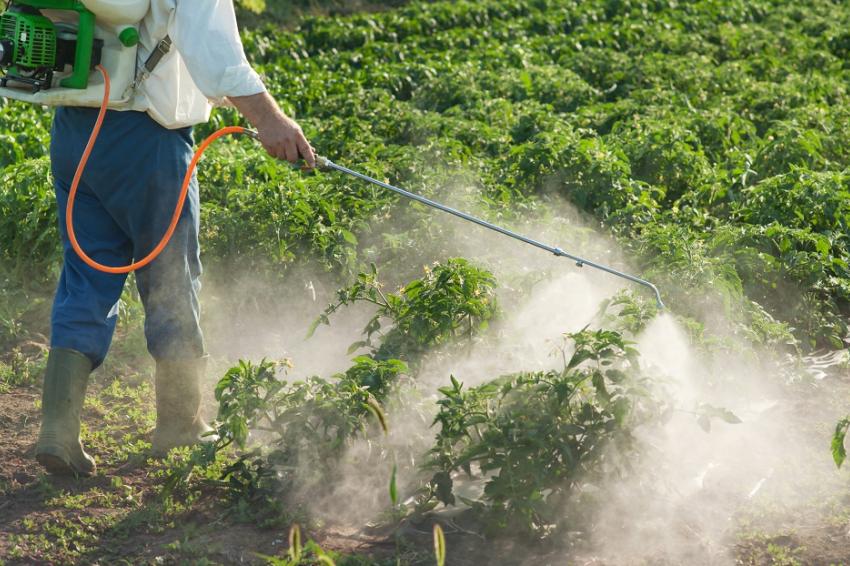EU Committee Hung on Glyphosate Renewal
07.06.2016 -
At its Jun. 6 meeting in Brussels, the EU’s Standing Committee on Plants, Animals, Food and Feed (Phytopharmaceuticals Section), the expert panel representing the 28 member states, failed to make a decision on whether to renew the sales authorization of glyphosate. At stake was also for how long and under which conditions the active ingredient in herbicides such as Monsanto’s Roundup program should remain on the market.
Altogether 20 member states voted in favour of the European Commission’s (EC) latest compromise proposal recommending an extension for only 12 to 18 months to give the European Chemicals Agency (ECHA), the body that administrates REACh, more time to examine evidence on whether glyphosate causes cancer.
The proposal did not gain the required support of 65% of the EU’s total population, however, as seven other countries, including three of the most populous – Germany, France and Italy – abstained. Solely Malta voted against the extension.
A vote had been postponed several times previously as the chances of reaching a consensus remained doubtful. This was the last opportunity for the representatives of the member states to make a decision before the authorization expires on Jun. 30.
At the Commission’s meeting on Jun. 7, Vytenis Andriukaitis, health and food safety commissioner, will lead deliberations on how to proceed. In the absence of a consensus, following an appeals procedure, the EU’s governing body is authorised to at least temporarily renew the license on its own without the member states’ consent.
But even if the EU approves the glyphosate reauthorization, member states may still ban its application on their own soil. To facilitate a decision, the EC had already backed away from its initial plans to greenlight the herbicide ingredient to remain on the market for a further 15 years, based on an opinion by the European Food Safety Authority, EFSA, that the chemical compound was safe. The European Parliament (EP) had recommended as a compromise, halving the new license period to seven years.
Member states abstaining from voting were faced with massive internal opposition from their own consumer and environmental health advocates to remove glyphosate from the market, due to fears about its carcinogenic potential. In the case of Germany, the two partners in the “grand coalition” government, Christian and Social Democrats were at odds, with the former favoring renewal and the latter opposed.
The International Agency for Research on Cancer (IARC) within the World Health Organization (WHO) last year recommended classifying glyphosate as “probably carcinogenic to humans.” In line with EFSA’s stance, a more recent study by WHO (separate from IARC), together with the United Nations’ Food and Agriculture Organization (FAO), also concluded that herbicide ingredient was "unlikely to pose a carcinogenic risk” to humans exposed to it through food.
Failure to find a consensus on a glyphosate renewal could further jeopardize Bayer’s already controversial plan to acquire Monsanto, some observers said, though the German company has not acknowledged any possible effects. More than 80% of Monsanto’s sales are transacted in the Americas, with Europe making up under 13%. The ratio could change in the event of a successful merger, however.
Generally, comments on the outcome of the Jun. 6 vote were split along clear lines, as could be expected. Germany’s Social Democrat Environment Minister Hendricks said diplomatically, “many member states would like the question of cancer risks to be clarified before glyphosate can again be spread on our fields.”
Green party environment and food safety spokesperson in the EP, Bart Staes, said his faction applauded the governments that refused to authorize the controversial toxic herbicide. Along with being a carcinogen, glyphosate is probably also an endocrine disruptor with a “devastating impact” on biodiversity, he said, and “the Commission must stop continuing to trying to ram through approval.”
Martin Häusling, an MEP for the German Green Party, suggested that the abstaining member states were skirting their responsibilities, adding that, “it would have been right to prohibit glyphosate immediately. “
In contrast, The Glyphosate Task Force (GTF), a consortium of companies including Monsanto, remarked that, “it is clear certain member states are no longer basing their positions on scientific evidence, noting that an end to glyphosate use would “entail serious consequences” for Europe’s farmers.”
The association representing German agrochemicals producers, Industrieverband Agrar, commented that political considerations were disrupting the reliability of the approvals procedure for new products in Europe and harming the reputation of the EU as a good place to do business.





